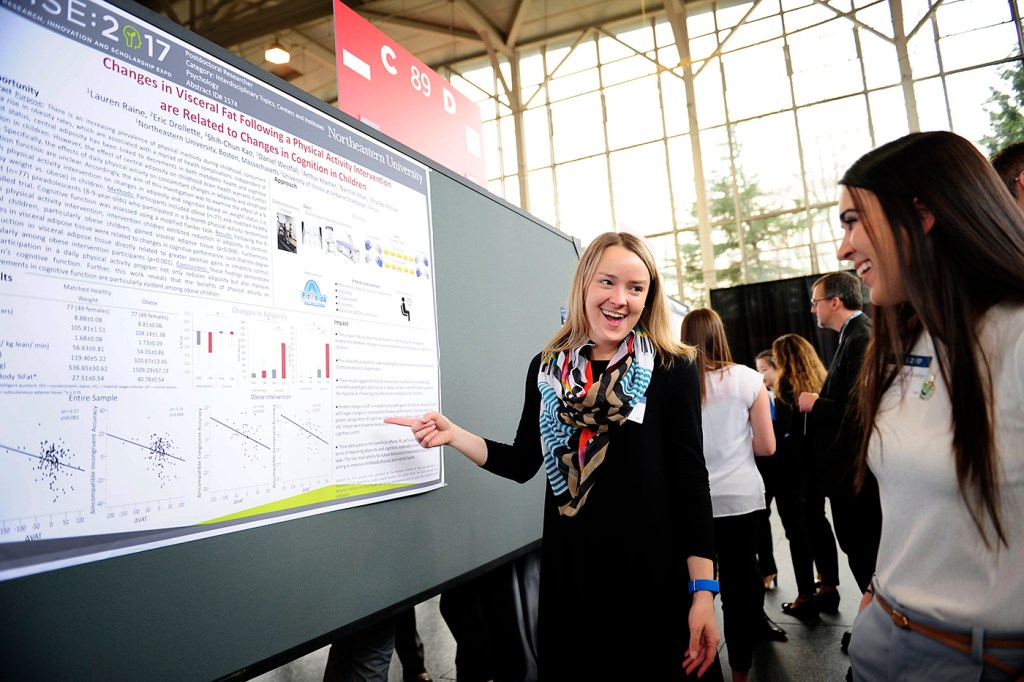Daily exercise reduces fat, improves cognitive function in kids

Daily exercise isn’t only good for kids’ physical health, according to Lauren Raine, a postdoctoral research associate in the Department of Psychology. It’s also good for their cognitive health.
Her study of how physical activity benefits the adolescent brain, led by professor Chuck Hillman, shows that 8- and 9-year-old children who run around for at least 70 minutes per day exhibit improved thinking skills compared to those who aren’t as active.
“The findings demonstrate that participation in a daily physical activity program not only reduces visceral fat but also improves children’s cognitive function,” says Raine, who is presenting her findings on the link between exercise and cognition in kids at RISE:2017.
Visceral fat—that is, body fat that is stored within the abdominal cavity, nearby a number of important internal organs such as the liver and the pancreas—has been linked to increased risk for heart disease and Type 2 diabetes. That makes any research intervention to reduce obesity particularly important, especially when it comes to kids who are carrying a lot of excess weight.
For this study, Raine examined the effects of a nine-month physical activity program on changes in visceral fat and cognition in children. She found that changes in visceral fat were related to changes in cognitive performance, such that the degree of reduction in fat directly related to greater gains in inhibitory control.
“These data speak to the beneficial effects physical activity,” she says, “particularly in obese children.”





